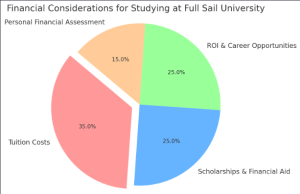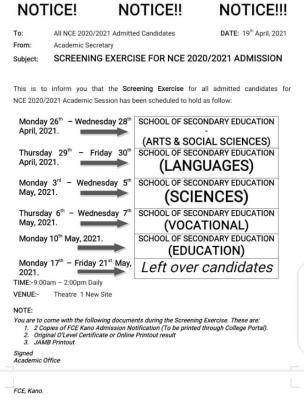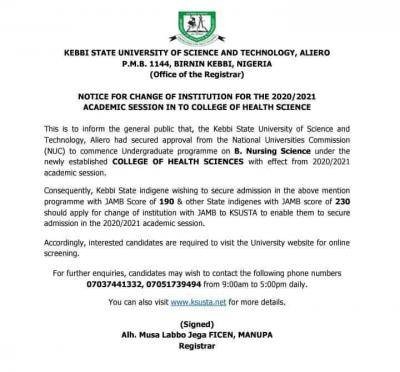
In today’s rapidly evolving educational landscape, the value of specialized institutions like Full Sail University is frequently debated. Our comprehensive analysis delves deep into what makes Full Sail a unique educational choice, particularly for those aspiring to careers in media, technology, arts, and entertainment.
This article explores various facets of the university, from its industry-centric educational approach and diverse program offerings to its national accreditation status and the implications thereof. We scrutinize the financial investment against potential returns, considering the school’s notable industry connections and the real-world applicability of its programs.
Further, we evaluate the experiences of Full Sail students, highlighting the importance of aligning individual goals with the university’s offerings. This piece aims to provide a balanced perspective, assisting prospective students in making an informed decision about whether Full Sail University is a worthy investment for their educational and professional future.
Educational Approach
The university’s educational approach is distinctly industry-centric, meaning that the curriculum is designed to mirror real-world scenarios and demands. This method is geared towards providing students with hands-on experience and practical skills directly applicable to their chosen fields.
By simulating industry environments and challenges, Full Sail prepares students not just academically, but also equips them with the practical know-how and problem-solving abilities that are crucial in today’s fast-paced and constantly evolving professional landscapes.
This approach is particularly beneficial for those seeking to plunge directly into dynamic and competitive industries immediately post-graduation.
Read Here: Why is Full Sail University Graduation Rate So Low
Program Offerings
Full Sail University excels in offering specialized programs tailored to the evolving media, technology, arts, and entertainment industries.
Among its diverse program offerings are degrees in Game Design, Film Production, Music Production, Computer Animation, Cybersecurity, and Graphic Design.
These courses range from associate to master’s levels, catering to a broad spectrum of interests and career aspirations.
Accreditation & Academic Recognition
Accreditation is a crucial factor in assessing a university’s credibility and Full Sail University’s national accreditation by the Accrediting Commission of Career Schools and Colleges (ACCSC) is significant. This accreditation is recognized by the U.S. Department of Education, ensuring that Full Sail meets certain educational standards.
National accreditation, like that of ACCSC, typically focuses on vocational, career, or technical programs, making it well-suited for Full Sail’s specialized curriculum in media, arts, and technology. While it’s different from regional accreditation, which is more common among traditional four-year universities and often preferred due to its broader academic focus, national accreditation is still a mark of quality.
It ensures that Full Sail’s programs are regularly reviewed and meet specific standards of educational quality, which can be reassuring for prospective students looking for specialized, career-oriented education. This accreditation also enables students to access federal financial aid, adding to its value.
Cost and Financial Considerations

The financial aspect of studying at Full Sail University is a significant consideration for prospective students. The cost of programs can be considerable, with some reaching or exceeding $94,000.
This high cost underscores the importance of evaluating the potential return on investment (ROI) of a Full Sail degree. Prospective students should consider the career opportunities and salary prospects in their chosen fields, alongside the university’s strong industry connections, which can be a gateway to internships and job placements.
Full Sail tries to mitigate the financial burden through various scholarships and financial aid options. These scholarships are designed to support a wide range of students, including those demonstrating academic excellence, creative talent, or financial need. Additionally, the university provides guidance on accessing federal financial aid, which can further ease the cost of tuition.
Understanding the full scope of these financial resources is crucial. Students should also consider the long-term implications of any loans they might need to take. Given Full Sail’s focus on providing practical, industry-relevant skills, the investment can be worthwhile for those committed to careers in the dynamic fields of media, arts, and technology.
However, it’s imperative for each student to carefully assess their personal financial situation and career goals to determine if the cost aligns with their professional aspirations and potential earnings post-graduation.
Learning Environment: Online and On-Campus
Full Sail University’s dual modalities of education — online and on-campus — are tailored to accommodate the diverse preferences and circumstances of its student body. The online programs are a boon for those who need flexibility due to work commitments, geographical constraints, or personal preferences.
These programs allow students to access coursework and lectures at their convenience, providing an opportunity for education that fits into varied lifestyles and schedules.
On the other hand, the on-campus experience at Full Sail is distinctly immersive. Students have hands-on access to industry-standard equipment and state-of-the-art facilities, which is invaluable for fields like film production, game design, and music production.
This direct interaction with professional-grade resources offers a practical learning environment that closely mirrors real-world industry settings.
Adding to this flexibility is Full Sail’s rolling admissions policy and monthly program starts, which allow students to enrol at a time that’s most convenient for them, rather than adhering to traditional academic calendars.
This approach is particularly advantageous for those eager to begin their education and career journey without delay. Both modalities underscore Full Sail’s commitment to providing an adaptable and practical educational experience, aligned with the needs and goals of its students.
Industry Connections and Employment Outcomes

Full Sail University distinguishes itself with robust industry connections, particularly in the media, entertainment, and technology sectors, which play a pivotal role in its educational model.
These connections are not just superficial links but are deeply integrated into the curriculum and student experiences.
Full Sail frequently hosts industry professionals as guest speakers and offers networking events, providing students with invaluable insights and direct access to industry insiders.
Graduates of Full Sail have successfully transitioned into esteemed companies, showcasing the practical effectiveness of its programs. These alumni stories serve as testament to the real-world applicability of the skills and knowledge gained at Full Sail.
However, it’s crucial to recognize that while the university provides the tools and opportunities, individual effort, initiative, and networking are key determinants of success.
Students who actively engage with these industry connections, apply their learning in practical settings, and build their professional network are more likely to leverage Full Sail’s unique offerings into successful careers in their chosen fields.
This proactive approach is essential in maximizing the benefits of Full Sail’s industry-focused educational environment.
Student Experiences and Outcomes
Student reviews of Full Sail University reveal a spectrum of experiences, underscoring the necessity for prospective students to have a well-informed perspective on what the university entails.
Full Sail’s curriculum is notably intensive and specialised, tailored to the fast-paced and ever-evolving fields of media, arts, and technology.
This demands a high degree of self-motivation and dedication from students, as the programs are designed to simulate real-world industry pressures and deadlines.
Understanding this unique educational approach is key. Success at Full Sail often hinges on a student’s ability to independently drive their learning and creatively apply their skills.
Additionally, the mixed reviews highlight the importance of personal initiative in leveraging Full Sail’s resources, industry connections, and collaborative opportunities.
Prospective students should carefully consider their own learning preferences, career ambitions, and readiness for a rigorous academic environment that closely mirrors professional industry standards.
This alignment of expectations with Full Sail’s distinctive educational model is crucial for a fulfilling and productive academic journey.
Pros & Cons
| Pros | Cons |
| Industry-centric curriculum | High tuition costs |
| Diverse program offerings | National accreditation only |
| Practical skill development | Intensive course workload |
| Strong industry connections | Limited degree recognition |
| Flexible online options | |
| Innovative teaching methods | |
| Hands-on learning experience | |
| Career-focused education | |
| Networking opportunities |
Frequently Asked Questions
Are Full Sail degrees respected?
Full Sail degrees are recognized in specific industries like entertainment, media, and technology, where practical skills and portfolio work often hold more value than the school’s name.
However, the level of respect can vary depending on the field and the employer, with some placing more emphasis on the practical experience Full Sail provides, while others may prefer degrees from regionally accredited institutions.
Is it hard to graduate from Full Sail University?
Graduating from Full Sail University can be challenging due to its accelerated programs and intensive coursework designed to mimic real-world industry demands.
Students are required to be highly self-motivated and dedicated, with a strong work ethic to keep up with the fast-paced learning environment and project deadlines.
Should you go to Full Sail University?
Attending Full Sail University is ideal for students seeking a career-oriented education in fields like game design, film, and music production.
It’s well-suited for those who thrive in an intensive, hands-on learning environment and who value practical experience and industry connections. However, it’s important to consider personal learning preferences, career goals, and financial implications before deciding.
What is the success rate of Full Sail University?
The success rate at Full Sail University varies by program. It’s often measured by graduates’ employment in relevant industries post-graduation. Full Sail reports success through its graduates working on award-winning projects and in well-known companies.
However, like any institution, individual success depends on various factors, including the student’s effort, networking, and how they leverage the opportunities provided by the university.
Conclusion
Full Sail University presents a unique educational model tailored to specific industries, demanding careful consideration of its specialized programs, industry connections, and financial investment.
While it offers extensive opportunities for hands-on experience and practical skill development, success largely depends on individual initiative and alignment of personal goals with the university’s focused approach.
This analysis serves as a guide for prospective students to weigh the potential benefits against their aspirations, ultimately helping them decide if Full Sail is the right investment for their academic and professional journey.



